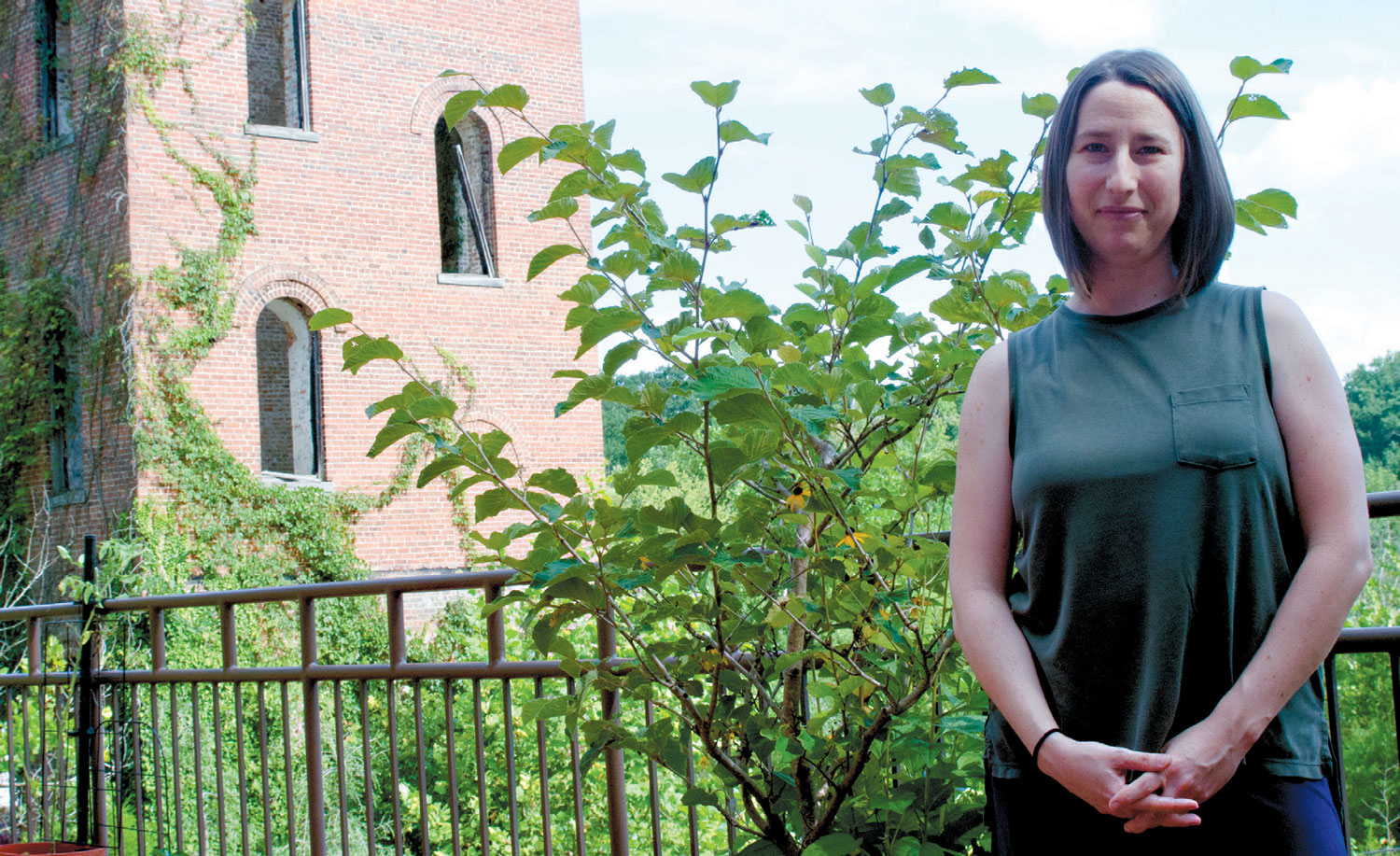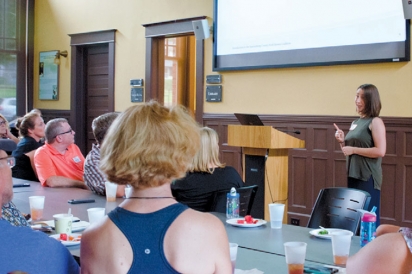The Advocate: Alissa Ritzo Duncan
This city planner is well positioned to improve access to healthy, local food in the Upstate— for all.
The farm-to-table movement is dedicated to “knowing where your food comes from.” As Spartanburg’s City and Regional Planner, and the force behind the city’s Food System Coalition, Alissa Ritzo Duncan knows the movement goes much deeper than the origin story of your steak.
Duncan’s interest in foodways was piqued as an undergraduate studying anthropology. Her interest in the cultural, social and economic practices related to the production and consumption of food carried through to graduate school where she earned a Masters degree in City and Regional Planning. At Clemson University, Duncan researched how to fill gaps in the local producer-to-consumer food market chain; however, it wasn’t until she started her own planning firm, Broadmoor Planning, that she had the chance to work on the local food system.
After a few years of research, Duncan and her partners were able to figure out what could be done to strengthen the local food system. Columbia had established their municipal Food Policy Committee around the same time. Duncan’s colleague, Andrew Waters, wrote an article about the Columbia Food Policy Committee and suggested to Duncan that Spartanburg start one as well. Her response? “Let’s do it!”
Spartanburg, like many other communities, has a food system aligned for the global industrial model. “This in itself is not a bad thing, but what is bad is that there is a lack of infrastructure for the small-to-medium sized farms who want to sell food locally,” she says. This was acutely evident to Duncan when an area school district struggled to offer students meals prepared from scratch with local, organic foods. During the 2013-2014 school year they served approximately 1.4 million meals, business that could have gone to local farmers.
Local food policy councils address issues and challenges in the food system and write policies to effect change. As Duncan makes changes, her group will be less of a council and more of a coalition whose overall purpose will be to link together as many organizations related to food as possible.
“We need to have one voice and one plan that will result in greater access to healthy local food for our residents and visitors,” Duncan says. The lack of communication and coordination among food system stakeholders is detrimental locally and even statewide, but greater communication and collaboration could keep more money spent on food in the local economy and create food-related jobs.
A focus on improving access to healthy local food for challenged communities in Spartanburg is of great interest to Duncan. She wants to have conversations with community members, hear their issues and work together to come up with a solution.
She’s working first and foremost on a Food System Assessment Plan, that—along with research, focus groups, and interviews with community leaders—will establish tasks for the Food System Coalition to provide greater access to healthy local food. Right now, Duncan’s goal is to get the word out and get more partners involved. “It’s very informal at this point. Everyone is a volunteer.” Ultimately, Duncan says, her “goal as a planner is always to improve the quality of life for communities and accomplish that in an equitable manner.” With advocates like Duncan leading the way, we can all get behind a better, fairer local food system.






